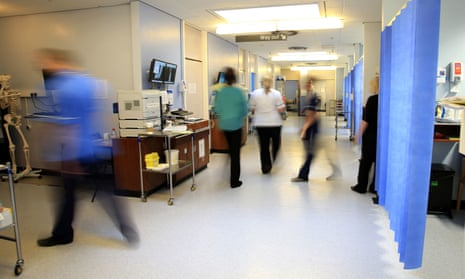A blood-thinning drug given as a potential life-saver to many patients recovering from severe Covid does not work and can cause major bleeding, research shows.
The findings have led to calls for doctors to stop advising people to take Apixaban, because it does not stop them from dying or ending up back in hospital and also can have serious side-effects.
The anticoagulant is given to patients when they are discharged after a spell in hospital being treated for moderate or severe Covid. It is widely used by hospitals across the NHS.
However, the UK government-funded Heal-Covid trial has found that it does not work.
Prof Charlotte Summers, the chief investigator of the trial, said: “These first findings from Heal-Covid show us that a blood-thinning drug, commonly thought to be a useful intervention in the post-hospital phase, is actually ineffective at stopping people dying or being readmitted to hospital.
“This finding is important because it will prevent unnecessary harm occurring to people for no benefit,” added Summers, who is an intensive care doctor at Addenbrooke’s hospital in Cambridge.
Dr Mark Toshner, the co-chief investigator of the study, said: “This trial is the first robust evidence that longer anticoagulation after acute Covid-19 puts patients at risk for no clear benefit.
“Our hope is that these results will stop this drug being needlessly prescribed to patients with Covid-19 and we can change medical practice.”
Guidelines drawn up by the National Institute for Health and Care Excellence (Nice) recommend that patients in hospital with Covid are given blood-thinning therapy for 14 days, even if they are discharged during that time.
Doctors keen to find effective treatments against Covid hoped that the drug would reduce the risk of people suffering blood clots by thinning their blood. However, during the trial, which was run by experts from Addenbrooke’s and Cambridge University, some of the 402 participants who received the blood thinner suffered serious bleeding that led to them coming off the drug.
The trial team also found that while 30.8% of Covid patients who received standard care ended up back in hospital within a year, only a slightly smaller proportion of those on Apixaban did so (29.1%).
Summers said that Nice had recommended blood-thinning therapy even though when it undertook a synthesis of the evidence around the issue in 2020 it found no clinical trials of post-hospital anticoagulation in discharged Covid patients, and called it a decision “based on consensus rather than evidence”. At the time, 11 different countries around the world had issued treatment recommendations for the post-hospital stage of the illness.
This article was amended on 28 November 2022. The guidelines drawn up by the National Institute for Health and Care Excellence, and the comments included from Prof Charlotte Summers regarding these guidelines, both relate to blood-thinning therapy in general, rather than to Apixaban specifically as an earlier version indicated. This has been corrected.
